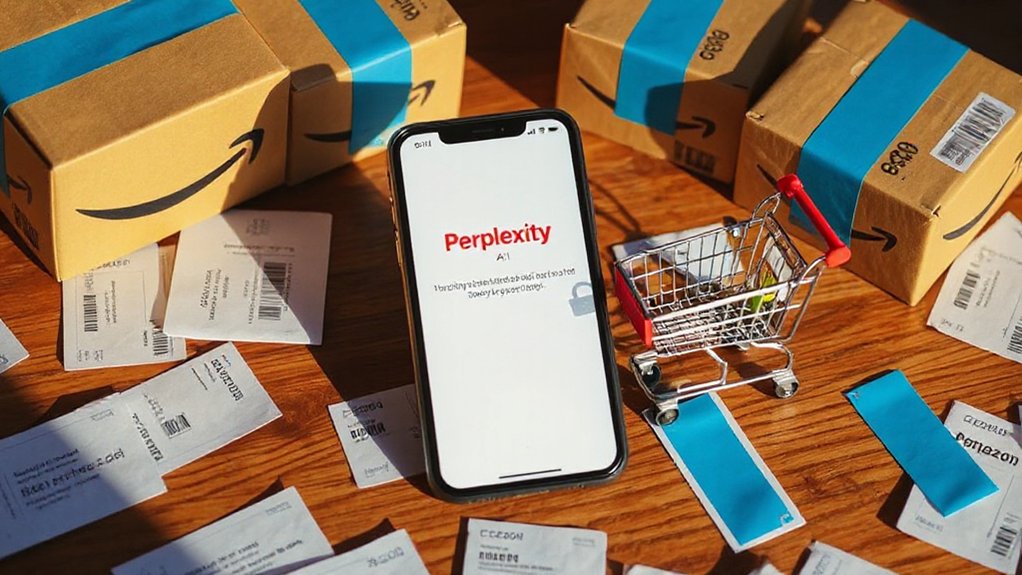Amazon has moved to prevent Perplexity’s AI assistant Comet from making purchases on its shopping platform. The company’s decision limits how users can interact with Amazon through third-party AI tools, even when shoppers willingly share their credentials.
Comet allows users to log in to Amazon using their credentials, which are stored only on their devices and not on Perplexity’s servers. This security measure protects user data while letting the AI find products, compare options, and complete purchases on behalf of users. This approach aligns with Perplexity’s commitment to developing true user agents that represent people’s interests rather than corporate priorities.
User credentials remain on-device only, ensuring security while AI handles product discovery and purchasing on their behalf.
Amazon’s block comes as the e-commerce giant focuses heavily on advertising revenue. CEO Andy Jassy recently highlighted the high returns on advertising as a key business advantage. The platform is designed to show sponsored products and ads that may not always serve the best interests of shoppers.
By restricting independent AI shopping assistants, Amazon may be protecting its ability to display ads and promote certain products. When AI tools bypass the traditional browsing experience, users might miss seeing the sponsored content that generates significant revenue for Amazon.
Jassy has mentioned plans to partner with third-party AI agents that align with Amazon’s business goals. These partnerships will likely feature AI that supports Amazon’s advertising model rather than completely autonomous shopping assistants focused solely on user benefit.
The clash represents a fundamental tension between user-centered AI services and Amazon’s commercial priorities. While Amazon might cite security concerns, Perplexity maintains that its device-only storage of credentials provides adequate protection. This restriction adds to growing privacy concerns related to how AI technologies handle and process sensitive user data.
This restriction could slow innovation in AI shopping assistants and limit competition in how users interact with online marketplaces. Consumers seeking AI tools that act purely in their interest may find fewer options as platforms like Amazon assert control over shopping interactions.
The situation highlights the growing tension between platforms that want to control user experiences and AI services designed to give consumers more power and efficiency in their online shopping journeys.
References
* https://www.perplexity.ai/hub/blog/bullying-is-not-innovation









